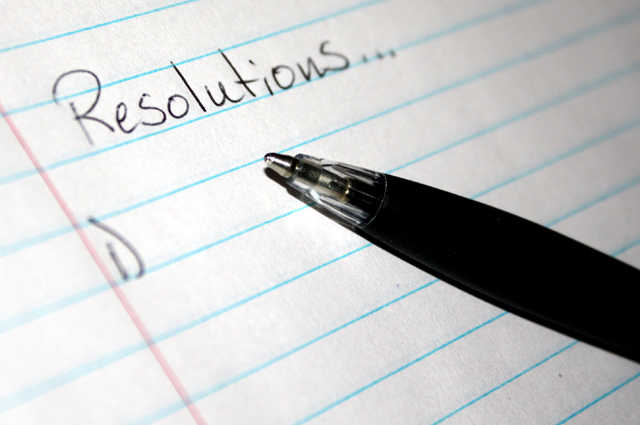On not losing sight of who we are, as we set our sights on who we want to be.
By Brian Christian
Now that the old year has ambled placidly off into the sunset and the new-born lamb that is 2015 has skipped cheerfully onto the scene, it is likely that many of you will have resolved to make a few much-needed changes in your lives. After all, in the dim distant early days of the Year of the Horse most of us set off at a gallop in our annual quest to better ourselves, only to fall at the first hurdle. Now it’s time to get back in the saddle.
I wonder what your resolutions are this time round? Have you taken out a gym subscription, or committed to the revolutionary diet that is finally going to give you the svelte figure you’ve always dreamt about? Perhaps you’ve given up smoking (again) or turned your back on the demon drink (at least for January). The more ambitious among you might even be thinking of running a marathon or (finally) taking some serious Japanese lessons. It seems that making New Year promises to ourselves that we have no genuine intention of keeping has become one of the more compelling traditions of modern life.
Now I’m all for self-improvement, I am definitely an advocate of life-long learning, and I know a little ambition can take you a long way. Sometimes, though, I feel like there’s a vicious circle that we run through each year—feeling guilty about who we are, and struggling in vain each year in attempts to change ourselves.
For me, perhaps the most appealing (no pun intended) of Japanese New Year traditions is Joya no Kane, the annual ringing of the temple bells to say sayonara to the year gone by and konnichiwa to the one on its way. The bells ring out 108 times, reminding us that contentment, real peace of mind, can only be attained if we can find it in ourselves to leave behind the inevitable disappointments of what Buddhists call our base Human Desires—all 108 of them.
New Year promises to ourselves that we have no genuine intention of keeping have become one of the more compelling traditions of modern life.
Tellingly, among Buddhism’s lengthy list of “defilements,” right up there alongside some of the usual suspects such as greed, vanity and sloth, we can also find self-denial, negativity and obsession. Think about that. Where do almost all of our New Year’s resolutions come from? The nagging sense that we are not all we could be, that somehow we are allowing ourselves to fall behind the rest of the pack. The celebratory bubbly has barely stopped bubbling before there’s a seductive murmuring in our ears telling us that our flat little lives need a bit more fizz. “This year things will be different,” we retort in our most persuasive, self-convincing tone. “This year we are going to make some changes.”
Why do we do it? Is it because we have become the willing victims of the siren voices selling us the idea that we are missing out, whispering that everyone else is at a party and we’re not invited? Maybe it’s just that we’ve fallen for the old illusion that the grass is greener on the other side—at least it might be if we could only muster the strength to climb that fence and take a peek.
Perhaps the central message of those New Year’s Eve temple bells is that we should learn to put any lingering discontentment from the past twelve months behind us and choose instead to be happy with who and what we are. Sure, no one is perfect, and we can all benefit from the occasional tweak to the way we live our lives, but we must not punish ourselves with ideas that we are not who we should or could be.
2015 might bring opportunity, it may even be the year that sees you finally keep one of those resolutions—but you will still be the same person you were last year, and much the same person you will be in twelve months’ time. You are a unique individual, one of a kind. Be content with that.
Brian Christian is Principal of the British School in Tokyo
Image: Wikimedia Commons









